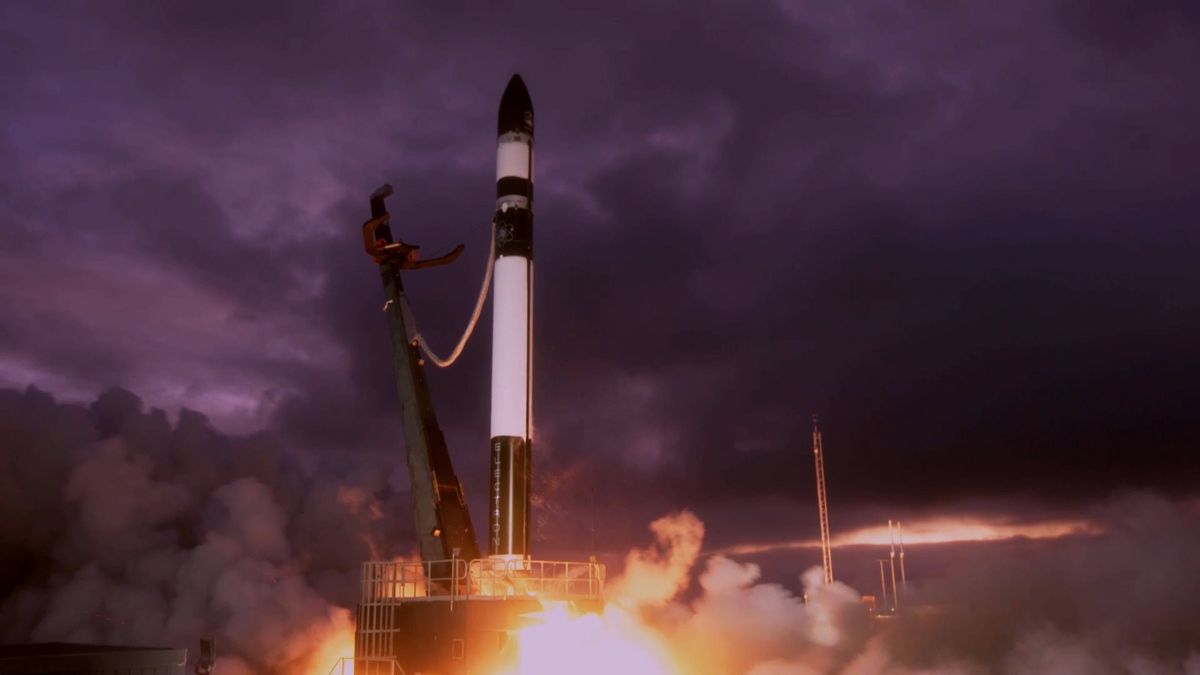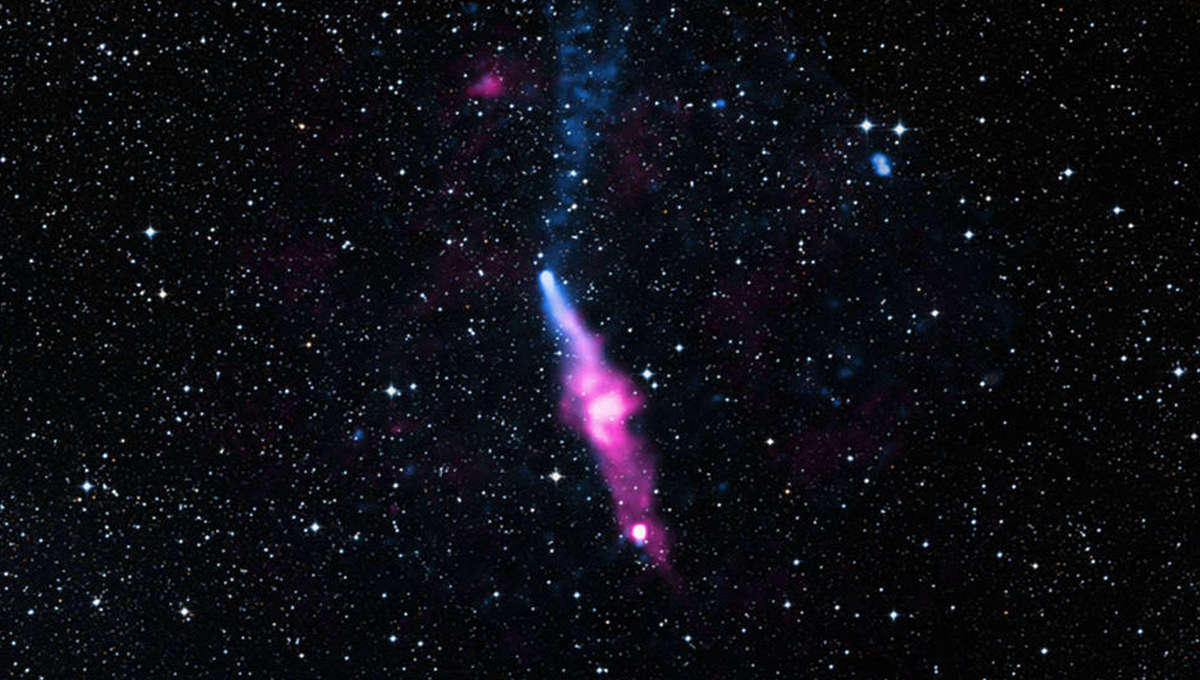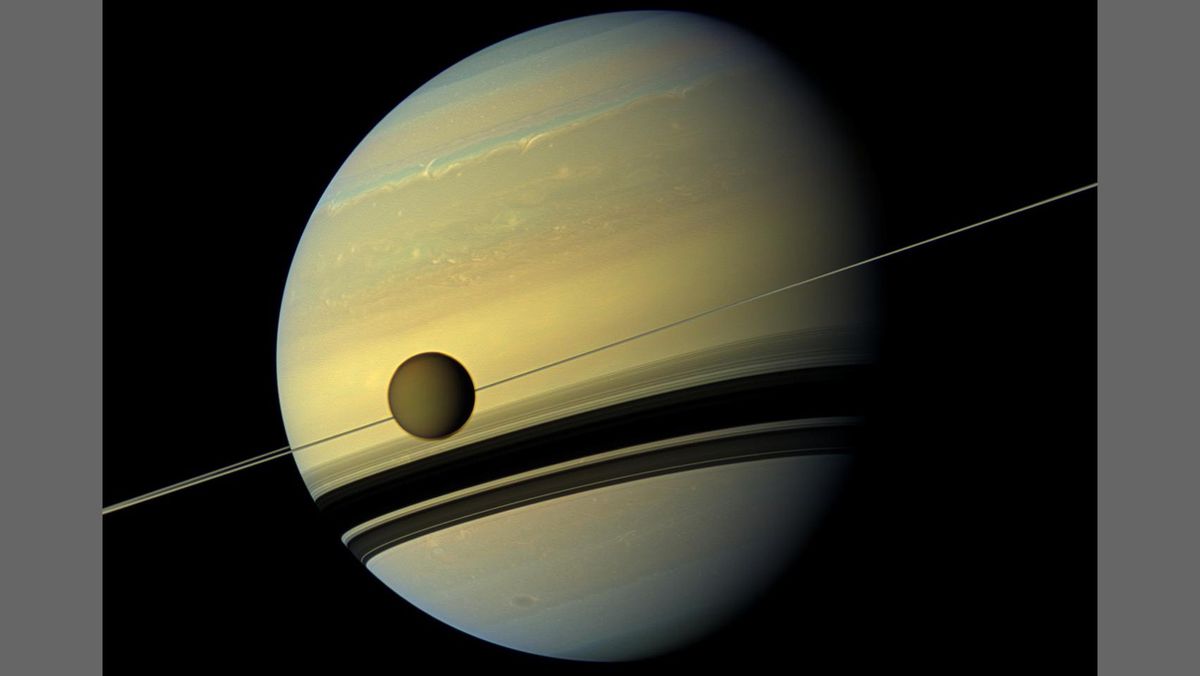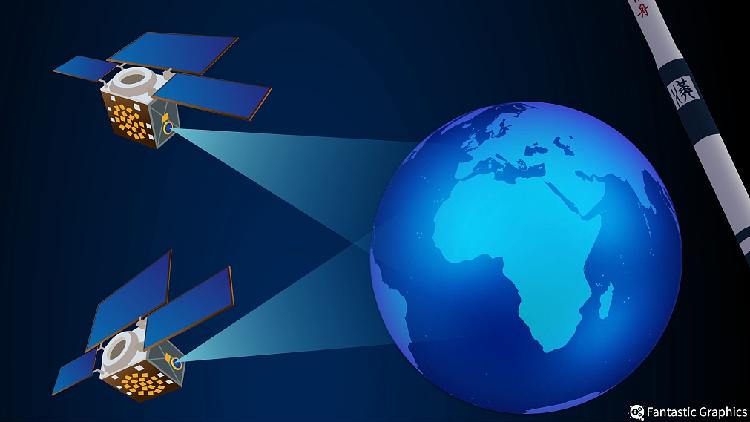
Rocket Lab's 12th mission finally got off the ground early this morning (June 13), after a 2.5-month delay caused by the coronavirus pandemic.
A two-stage Electron booster rose off the pad at Rocket Lab's New Zealand launch site at 1:12 a.m. EST (0512 GMT; 5:12 p.m. local New Zealand time), carrying five satellites aloft, including three payloads for the U.S. National Reconnaissance Office (NRO).
All five satellites were deployed successfully into their designated orbits, Rocket Lab representatives announced an hour after liftoff.
And here's another article:
Einstein's gravitational strong equivalence principle still holds up

If a pulsar and a white dwarf are orbiting another white dwarf somewhere in the cosmos, which would orbit faster?
"Pulsars that are orbited by white dwarf companions provide an excellent laboratory, where the extreme difference in binding energy between neutron stars and white dwarfs allows for precision tests of the SEP via the technique of radio pulsar timing," said Guillaume Voisin of the University of Manchester, whose team recently published a study in Astronomy & Astrophysics .
Texas explorer to become second person ever to orbit space and reach deepest point in ocean |
AUSTIN (Nexstar) — Richard Garriott will be the second person ever to have orbited space, and reach the deepest point in the ocean if everything goes as planned next week.
The Texas video game developer-turned-explorer leaves for Guam early Monday morning, and from there, will depart to the Mariana Trench in the Pacific Ocean. He will dive more than 6 miles underwater at the Challenger Deep, which is at the southern part of the trench.
Garriott went to space as a private astronaut in 2008, on a 12-day mission to the International Space Station.
Titan is drifting away from Saturn 100 times faster than we thought | Space

Saturn's moon Titan is zooming away from its ringed parent 100 times faster than scientists expected.
According to a new study, Saturn's largest moon was "born" fairly close to the planet, but over the course of 4.5 billion years, it has migrated out to where it orbits currently, approximately 746,000 miles (1.2 million kilometers) away from the planet. The Saturnian moon's orbit is now expanding away from Saturn at a rate 100 times faster than scientists had previously predicted.
Other things to check out:
U.S. SPACEWALK AT ISS, June 26, 2020, Earth orbit, 7:35 am ET – SpacePolicyOnline.com
NASA astronauts Chris Cassidy and Bob Behnken will conduct two spacewalks, on June 26 and July 1, to install new lithium-ion batteries on the outside of the International Space Station (ISS). The batteries were delivered on Japan’s HTV cargo spacecraft and are the last set to replace the nickel-hydrogen batteries originally used on ISS.
Too many satellites planned for orbit? | Commentary | oleantimesherald.com

There are an estimated 2,200 satellites orbiting the Earth at present, but telecommunications companies are launching dozens of new satellites regularly in hopes of providing high-speed broadband internet access to the entire planet.
Not to be left out of the game, Amazon plans to create its own space-based internet system, Project Kuiper, with the launch of more than 3,000 satellites.
That's a lot of satellites that could fill the skies over the next decade. Now would be the time for the formation of an international organization — composed of satellite companies, scientists and government representatives — that would provide some control over how many satellites orbit the Earth.
China's IoT satellites complete phase 1 in-orbit tests - CGTN

Two satellites for China's space-based Internet-of-Things (IoT) project have completed phase 1 tests in orbit, sources with the China Aerospace Science and Industry Corporation said.
The satellites, Xingyun-2 01 and 02, were launched by a Kuaizhou-1A carrier rocket on May 12 from the Jiuquan Satellite Launch Center.
Additional in-orbit tests will be continued for the completion of the Xingyun project, China's first self-developed, space-based IoT constellation.
Virgin Orbit Launch Attempt Ends Without Trip to Space - The New York Times

Strap a rocket to the underside of a plane. Fly it up several miles. Drop it. The engine ignites, and the rocket and its payload zoom to space.
That is what Virgin Orbit, one of the multitude of companies started by Richard Branson, tried to do on Monday, demonstrating a new rocket system for sending small payloads to orbit. But moments into its first launch attempt, the company said on Twitter that an undisclosed problem brought an early conclusion to the test mission.
Happening on Twitter
Someone said to me "Stop fighting for people you don't know, who wouldn't cross a street for you." No. I'll Do it.… https://t.co/HNLk5UNCFf mhdksafa Fri Jun 12 15:07:08 +0000 2020
Yall need to use them coins our employer just gave you to show up for us. black trans people need the support of po… https://t.co/jHEUqsFSA1 IndyaMoore (from Everywhere) Fri Jun 12 03:51:39 +0000 2020
No comments:
Post a Comment